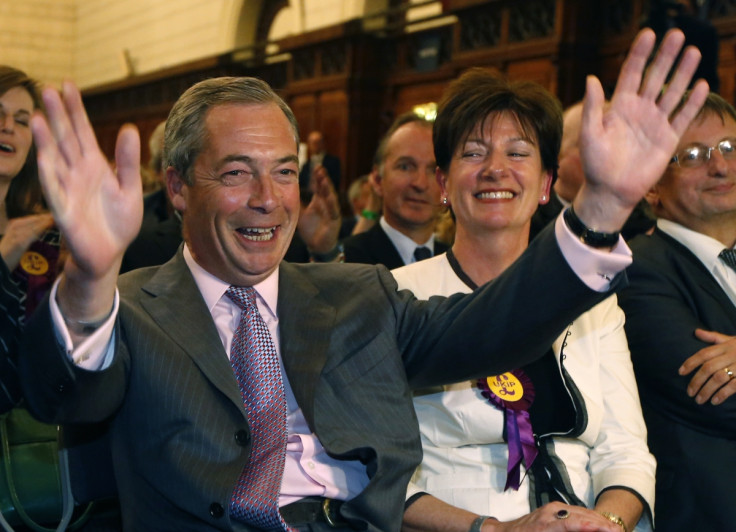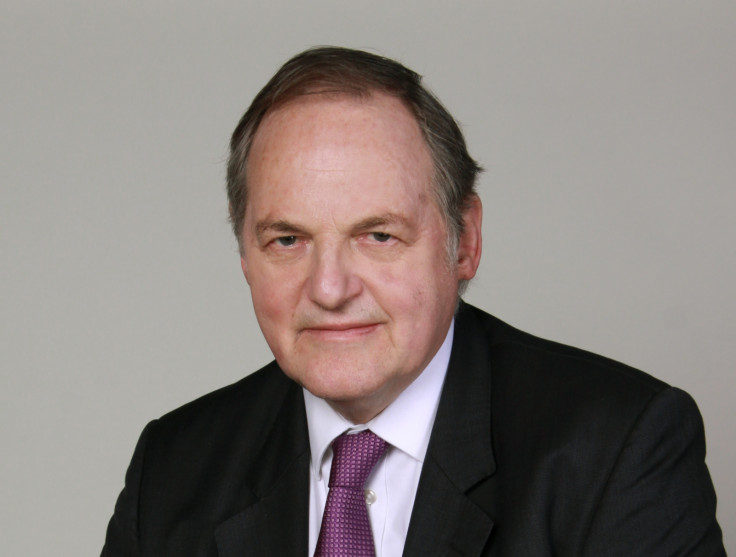TTIP Exclusive: Ukip Wants to Privatise the NHS in Controversial EU-US Trade Deal

The Ukip MEP for south-west England and Gibraltar and the party's spokesperson for trade, has told IBTimes UK that he supports the inclusion of the NHS and education in any free trade agreement negotiated between the EU and US.
While the party remains, in general, on the fence regarding the Transatlantic Trade and Investment Partnership (TTIP), William Legge, the 10<sup>th Earl of Dartmouth – commonly referred to as William Dartmouth – has confirmed in an email exchange that should a transparent agreement come to pass, the party "wishes to see public services such as the NHS and education included in TTIP".
This, essentially, suggests that Ukip supports the opening up of the health and education sectors to private US investors.
There is widespread confusion among politicians and public as to whether public services will be included in the world's largest free trade agreement. The European Commissioner-designate for Trade Cecilia Malmström attempted to alleviate some of the obfuscation in her parliamentary hearing on 29 September.
She explained that public services, including health, education and water management, were not on the agenda and that there was no obligation for national governments to include such sectors in order to enjoy the benefits of TTIP. However, any of the EU's 28 member states are free to bilaterally negotiate the inclusion of their own public services in the agreement with the US.
If this is indeed the case, Ukip would have to lobby the coalition government to bilaterally negotiate the inclusion of the NHS and education in an agreement with the US.
Ukip, despite holding a majority in the European Parliament among British parties, has thus far remained tight-lipped on its views about the deal currently under negotiation between officials from both sides of the Atlantic. Dartmouth also said that he wished to see more transparency in the negotiations.
He was presented with a series of questions, asking whether Ukip supports TTIP in general, his views on the controversial investor protection clause and the exact form he would like to see a future agreement take. To all of the above, he reiterated the party line: that Ukip will not support the deal until they "see some form of final agreement".

Speaking in Brussels in September, Dartmouth said: "However, be assured that my party will delay and defer making any judgement on TTIP until such time as there is something approaching a final text for us to consider."
Ukip has been criticised by the coalition for its failure to voice its true views on TTIP – despite professing to be supporters of free trade. The Business Secretary Vince Cable told the Huffington Post recently: "It does rather expose one of the weaknesses in their position because if you are a true believer in free trade then you want to trade more with the US."
"It's not clear if you were Britain out on its own how you'd possibly be able to negotiate a transatlantic treaty with the United States. The gateway to the US is actually through the European Union's negotiations."
The new party line on public services represents something of a turnaround. Louise Bours, the Ukip MEP for north-west England, previously said that "the agreement will make it nigh-on impossible for any government to take back control of a service currently provided by the private sector, should they fail to perform adequately".
Ukip has been accused of lacking a coherent and consistent policy regarding the health service. In April, party leader Nigel Farage said that he thought corporations should be permitted to run the NHS.
He told the Telegraph: "I genuinely do think, when you... occasionally hear of a big businessman that says he'd like to run the National Health Service and streamline it, and get better value for money, I think that's the approach we've got to take."
Ukip's Deputy Leader Paul Nuttall came under fire for posting a letter – since deleted – on his website congratulating the coalition government for "bringing a whiff of privatisation into the beleaguered National Health Service".
He went on to write: "The problem, however, goes far deeper. I would argue that the very existence of the NHS stifles competition, and as competition drives quality and choice, innovation and improvements are restricted.
"Therefore I believe, as long as the NHS is the 'sacred cow' of British politics, the longer British people will suffer with a second rate health service."
Despite these public utterances, the party has consistently denied that it wishes to see the privatisation of the health service. Douglas Carswell, the newly re-elected MP for Clacton who recently defected to Ukip from the Conservative Party, argued against claims that he supported charging patients for GP appointments.
He said: "I want no privatisation of the NHS, no top-down restructuring and no charging to see a GP."
© Copyright IBTimes 2025. All rights reserved.






















